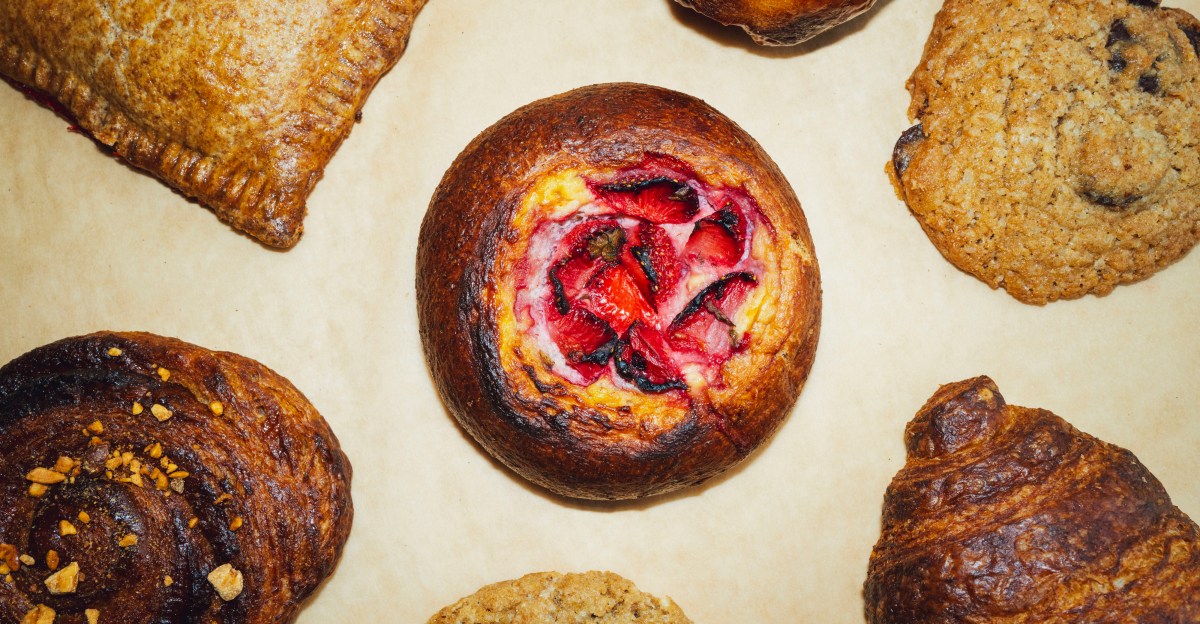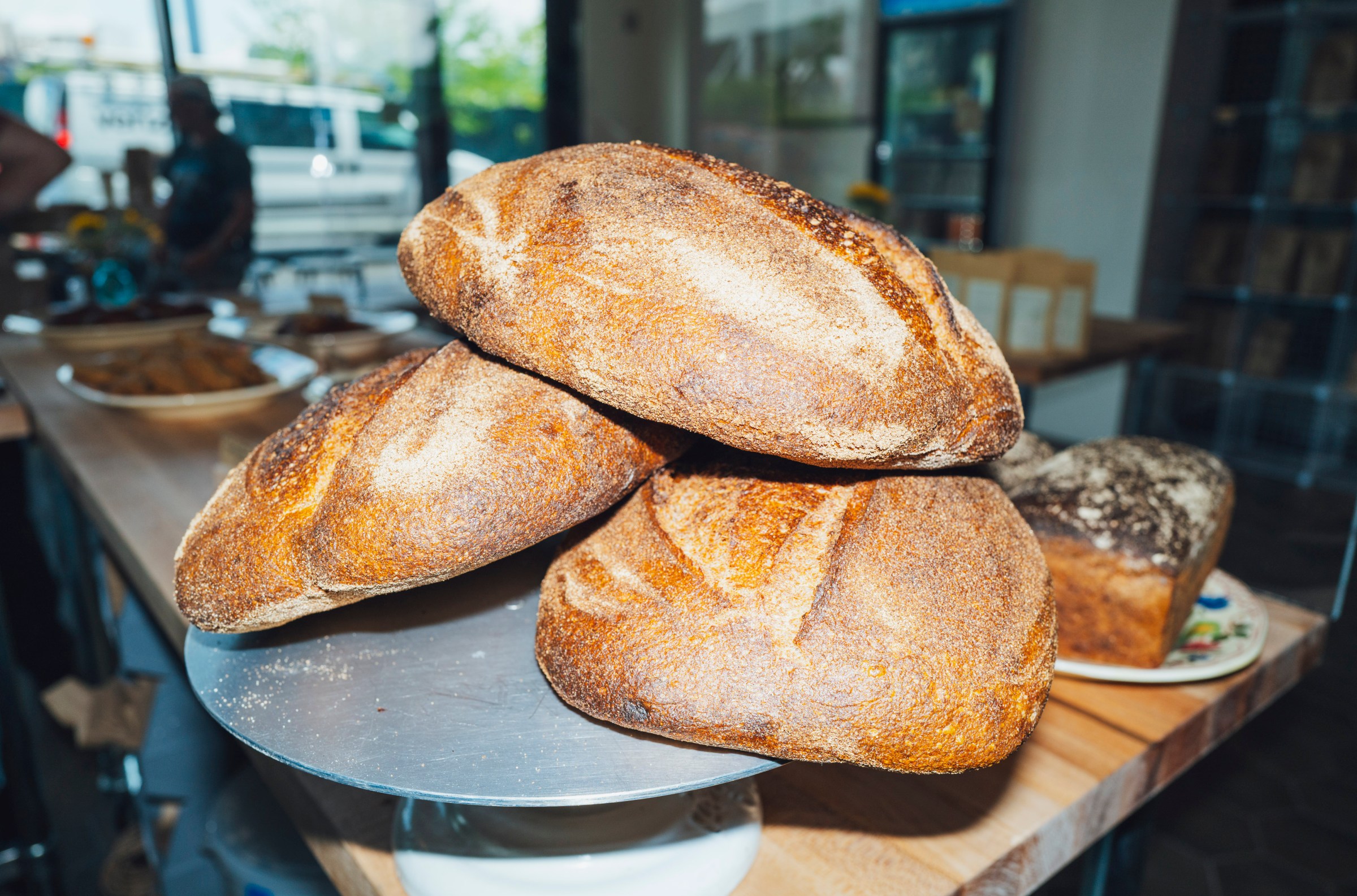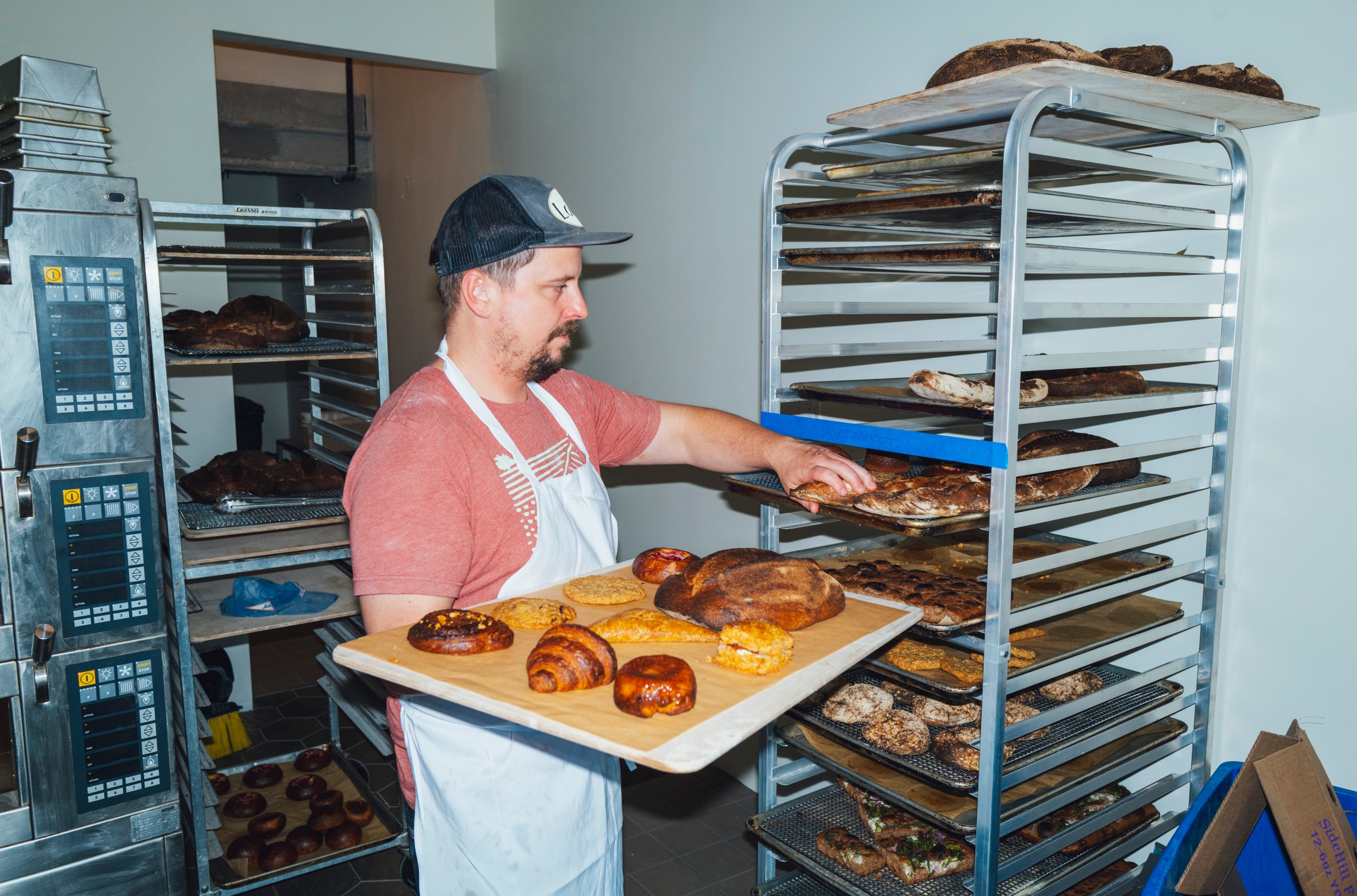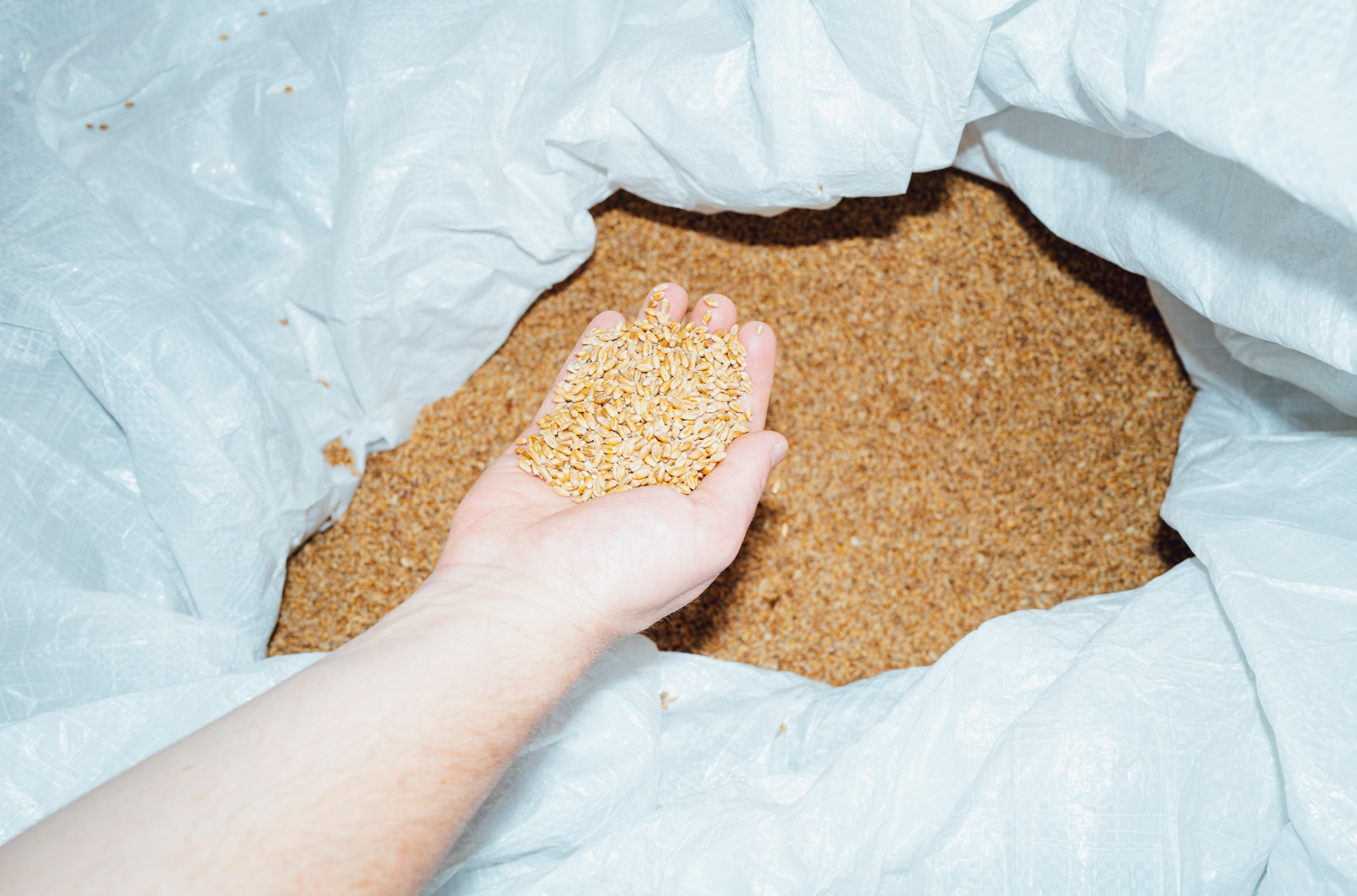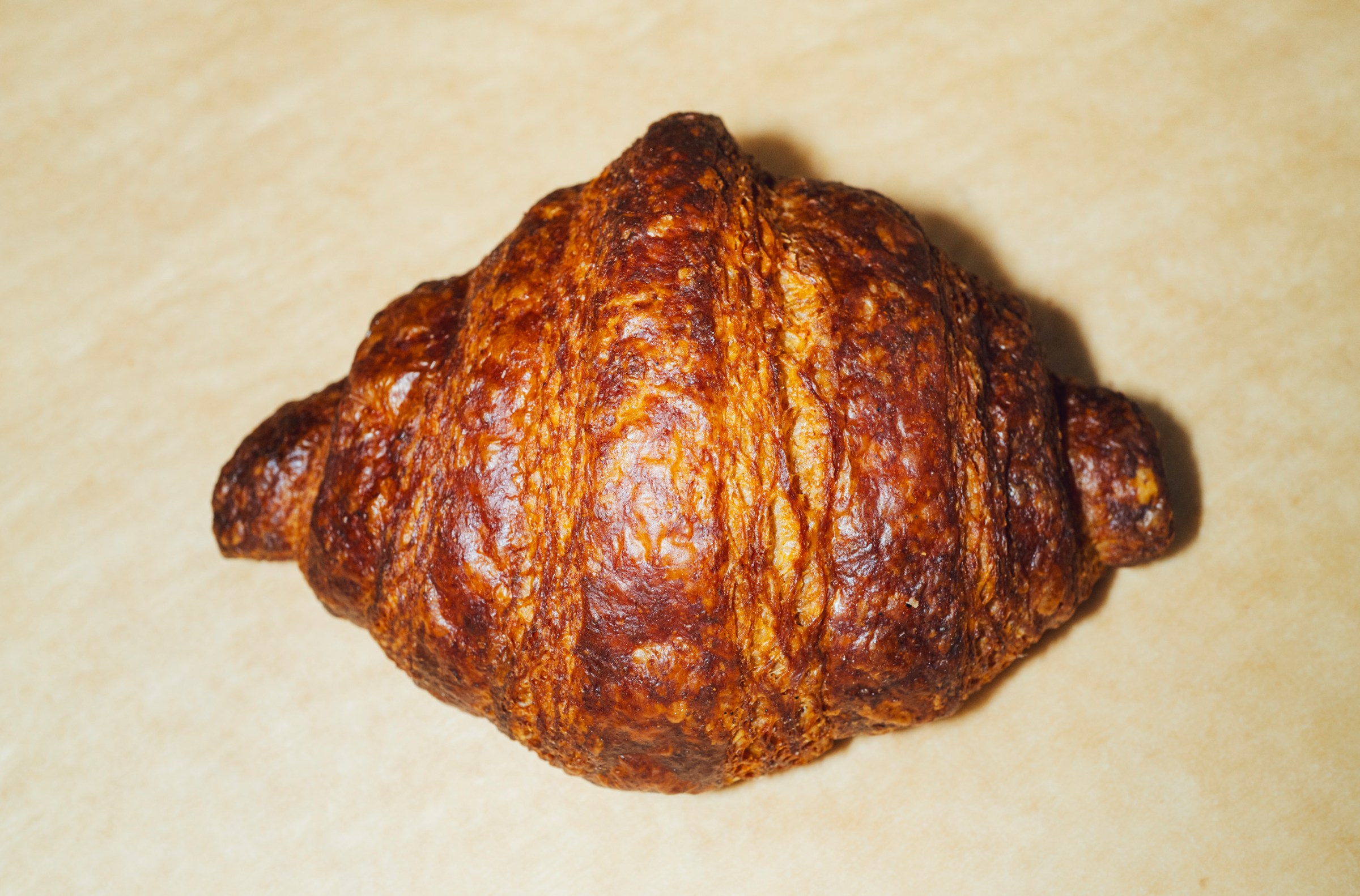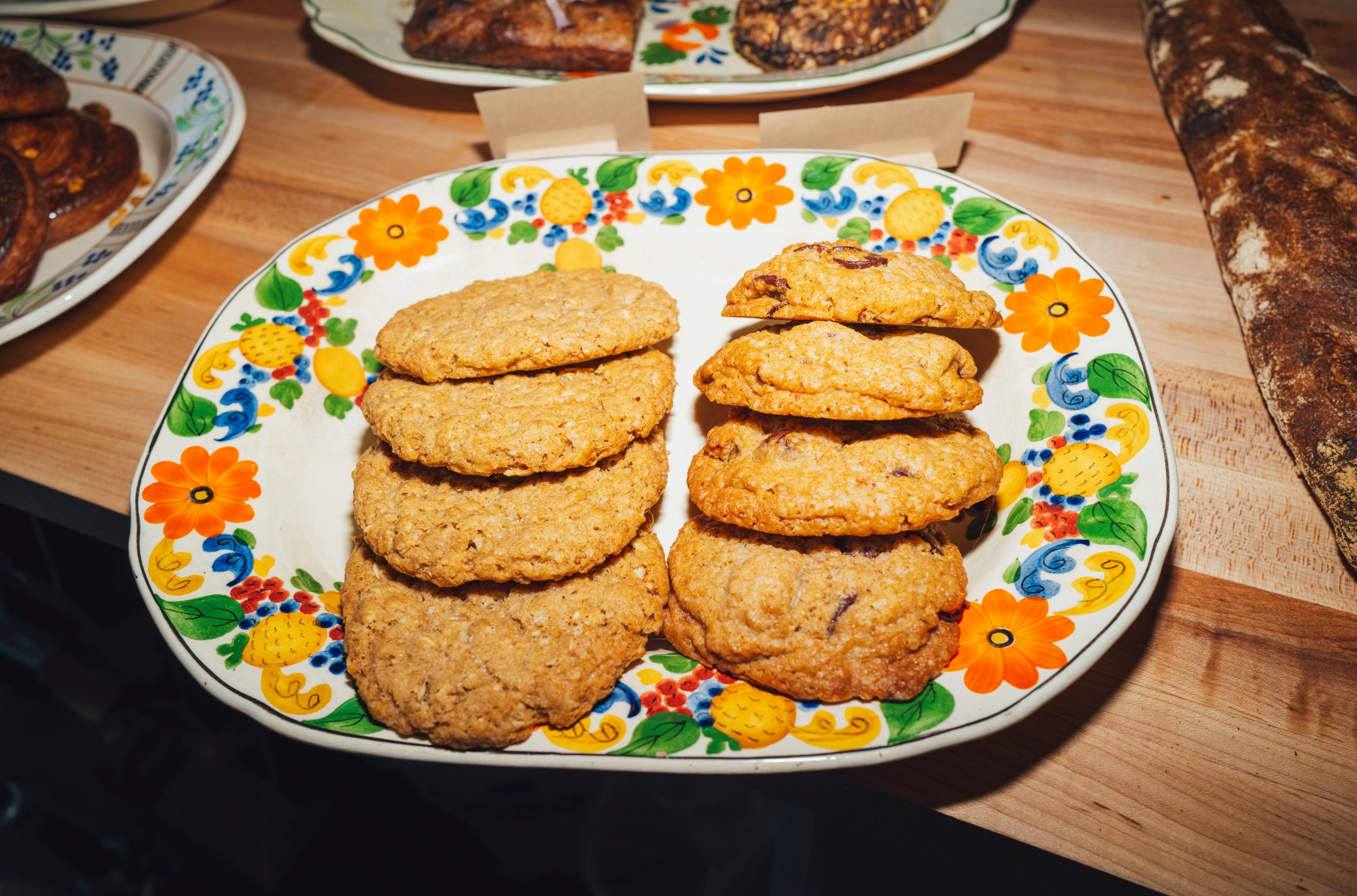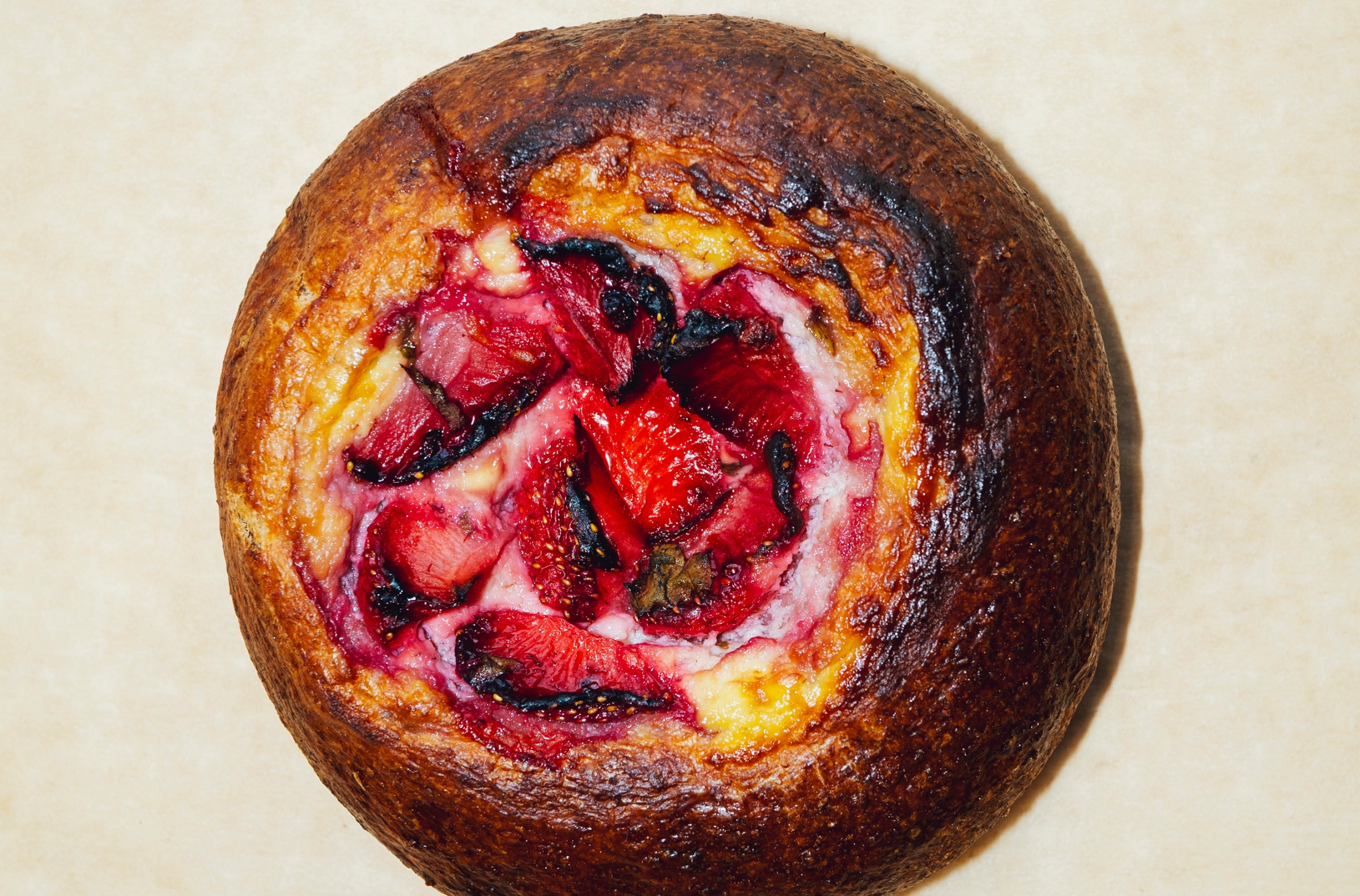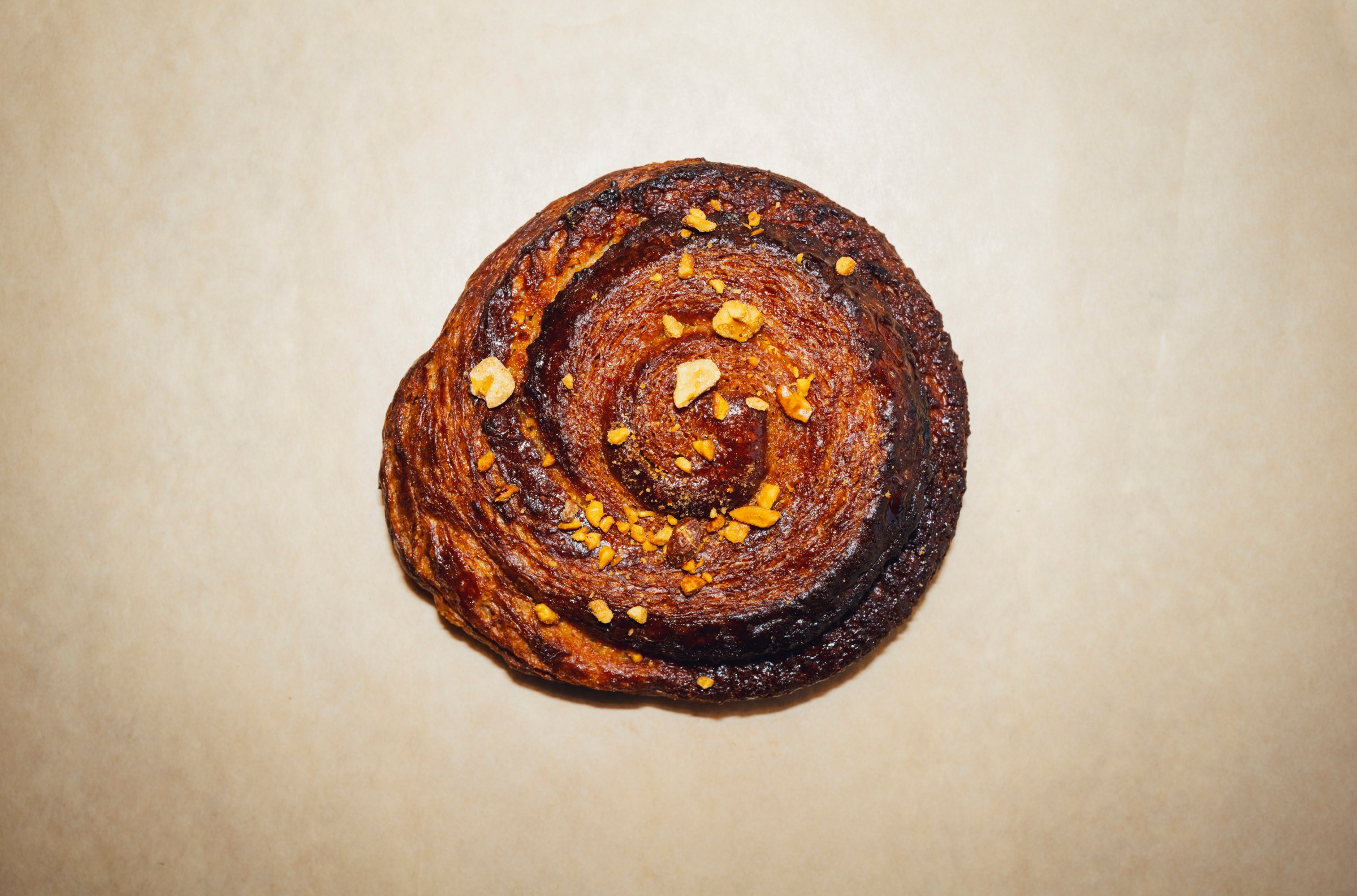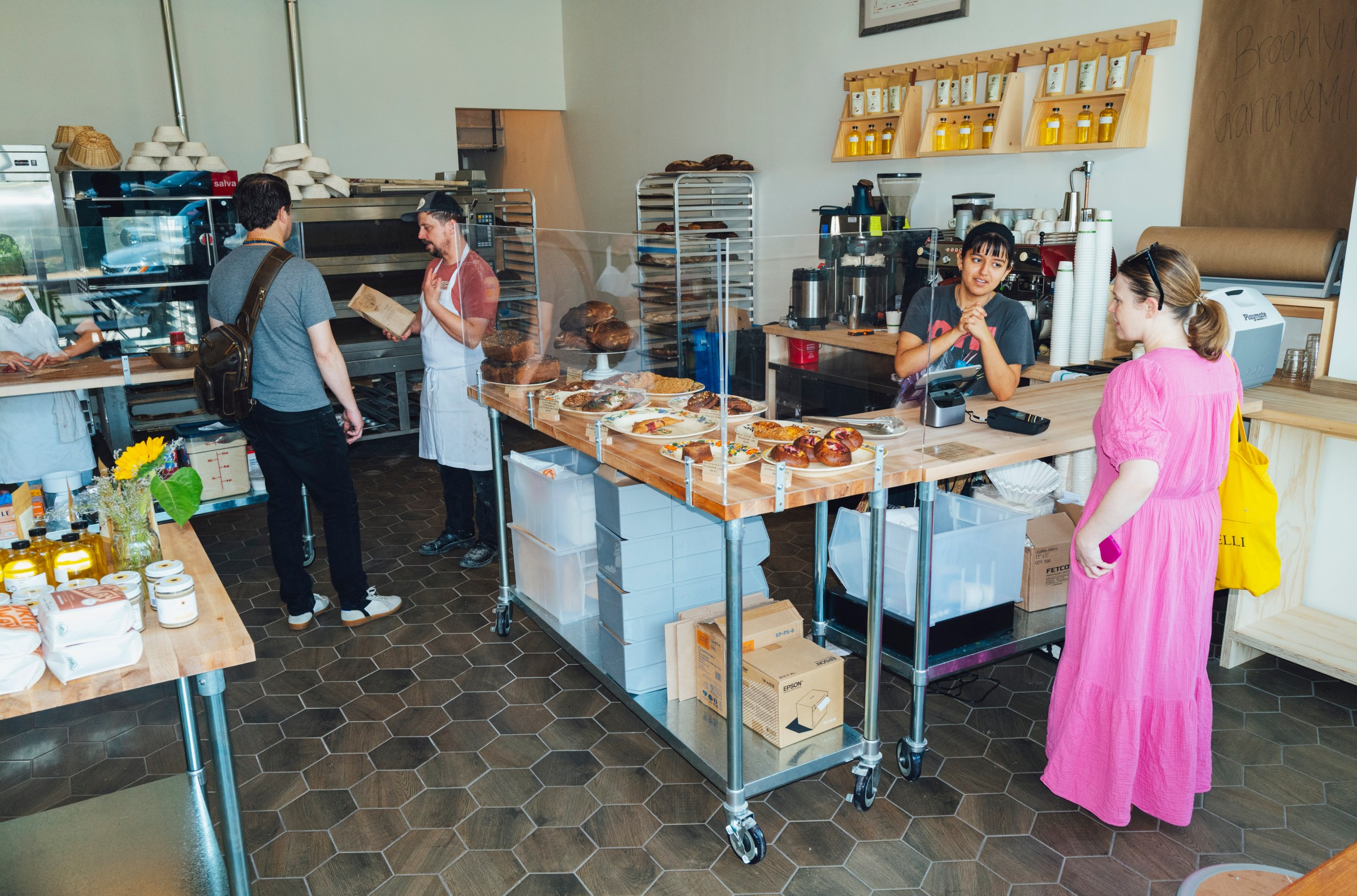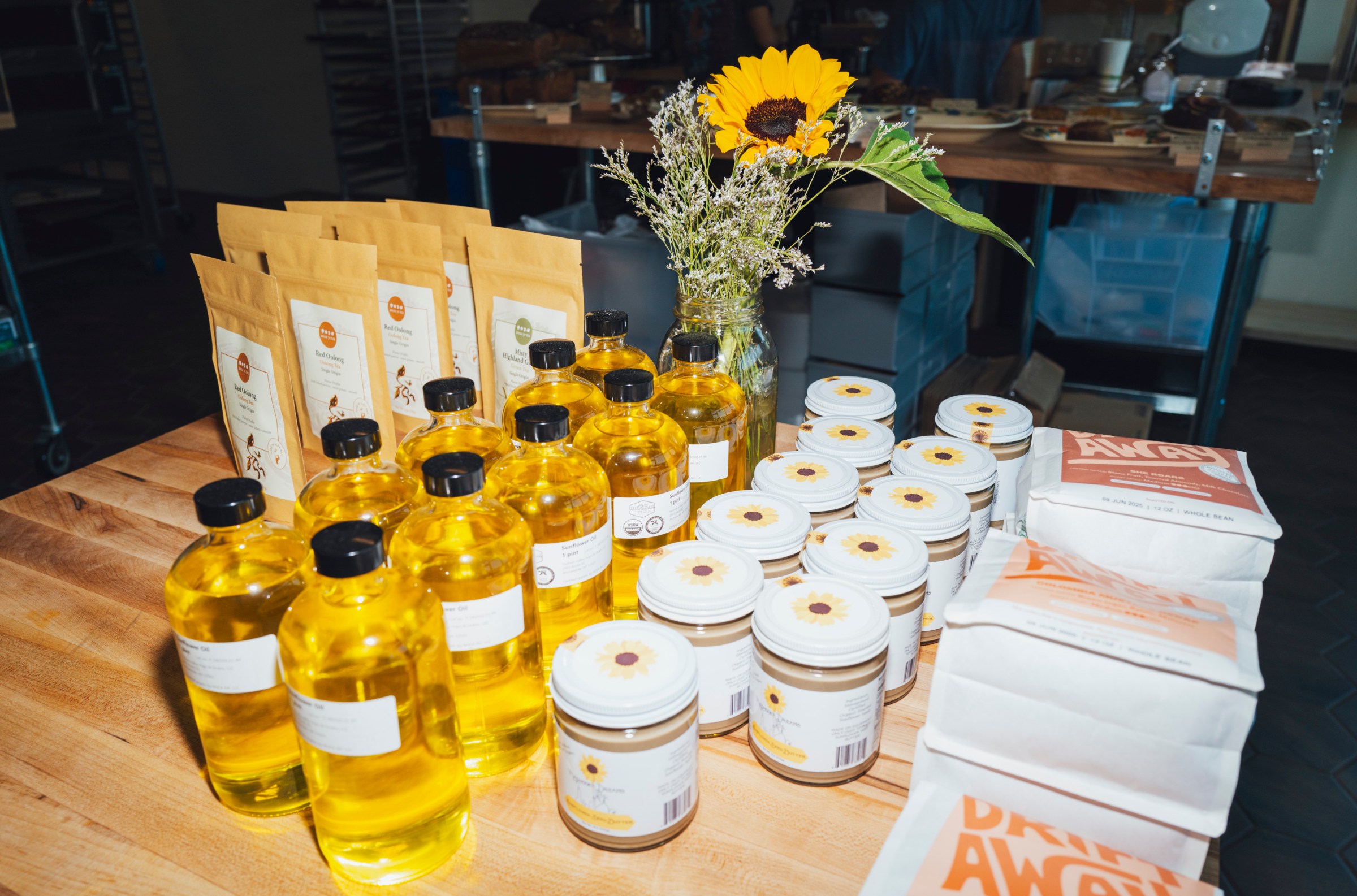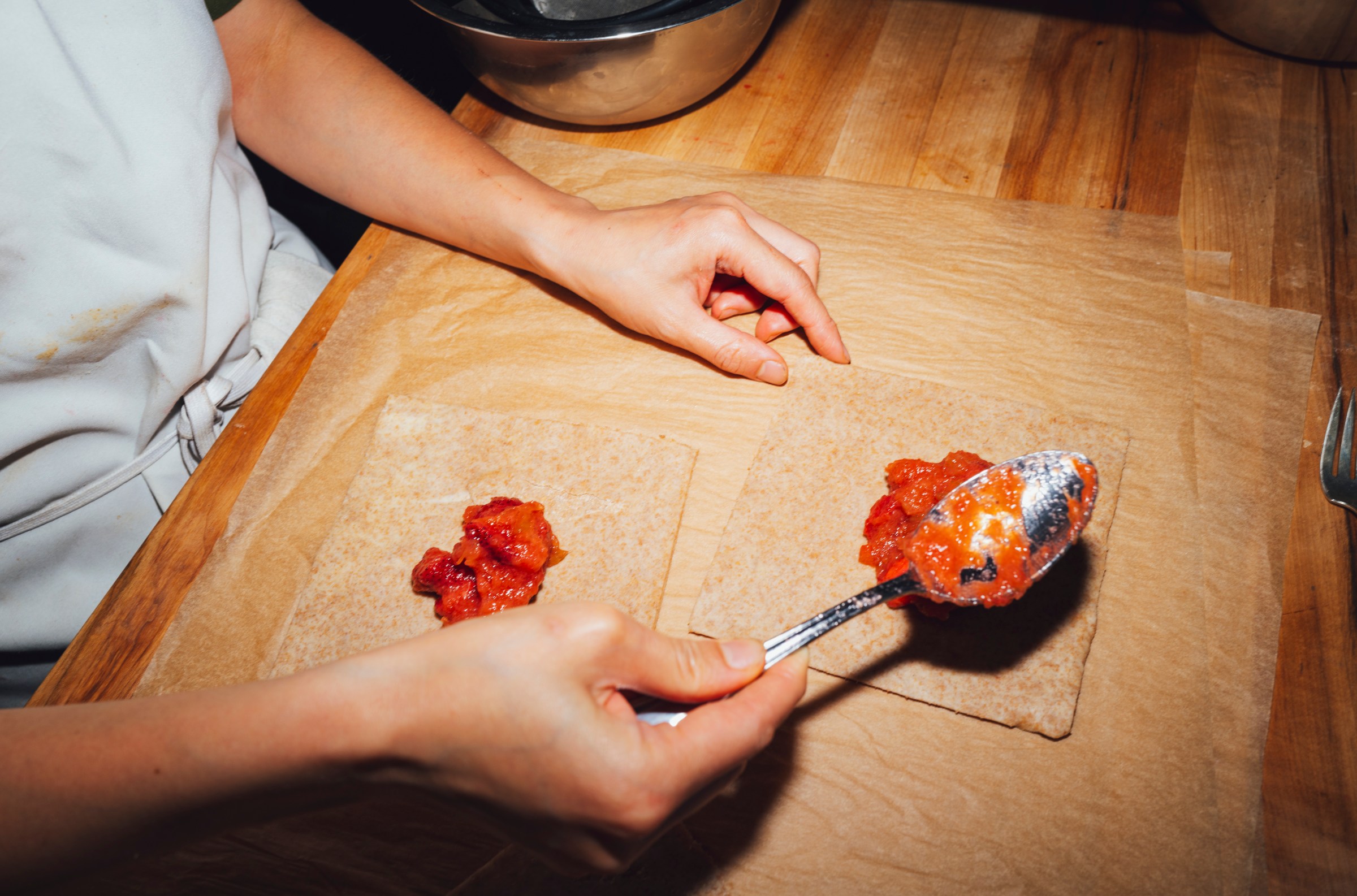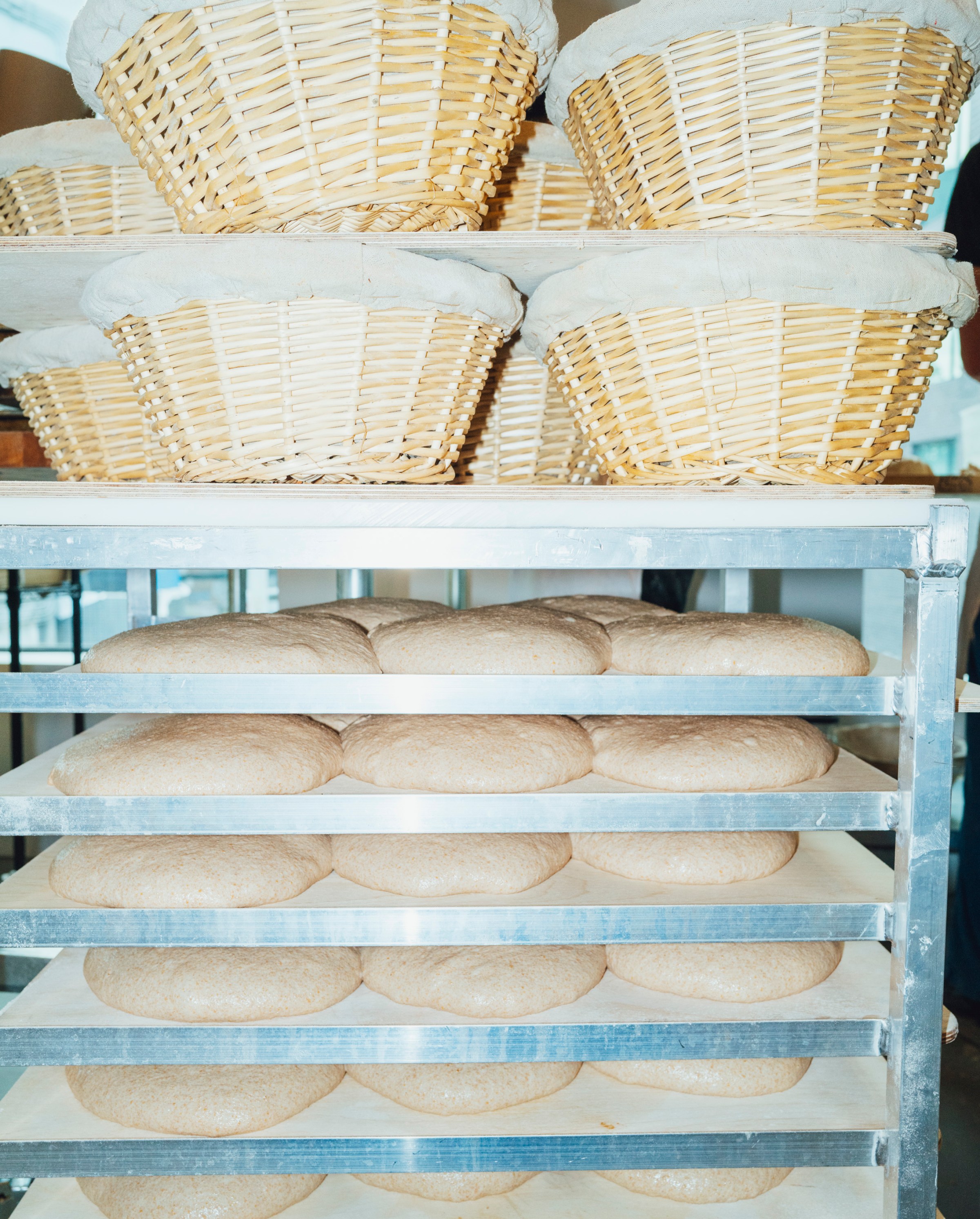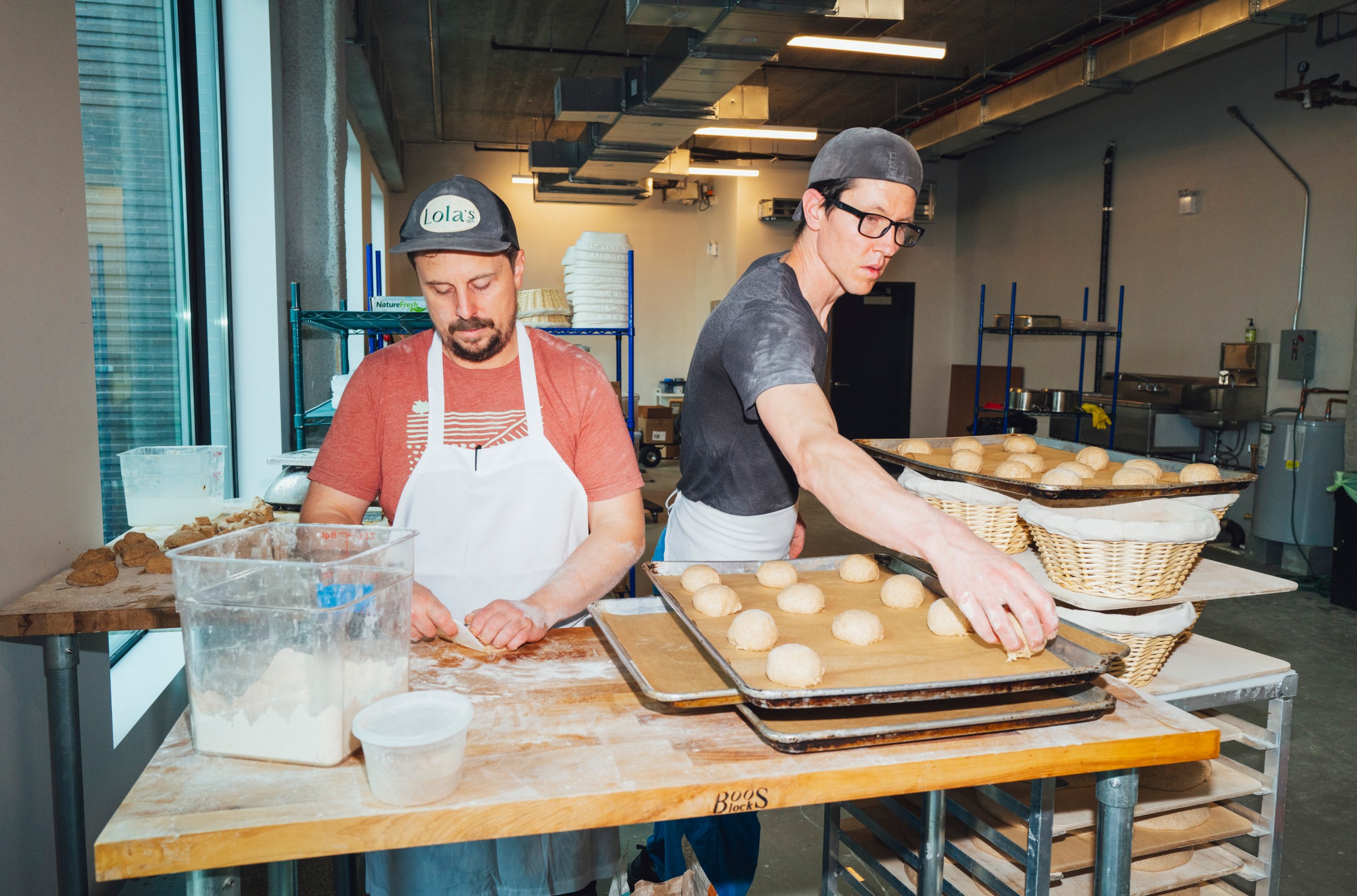Patrick Shaw-Kitch truly loves grains. It’s evident when you see the former head baker of Blue Hill at Stone Barns talk about and interact with grains and flours. He holds up handfuls of soft white wheat, notes the aroma of super-fine whole wheat flour, and opines on how spelt is an “underused grain in baking [that] has a great flavor and works really great in pastries,” he says.
It’s through Brooklyn Granary & Mill, which opened in the Gowanus neighborhood (300 Huntington Street) in April, where he gets to showcase grain varietals from the Mid-Atlantic and Northeast. And just this month in June, he opened his on-site seasonal bakery on the ground floor of the same building (240 Huntington Street), to show off how those regional ingredients can come together through baked goods.
Brooklyn Granary is part of the current wave of in-house milling. Back in the day in New York, typically, bakers wouldn’t make their own flour; instead, they’d have to go directly to millers (which were a-plenty throughout the state, dating back to the 18th century) to procure their needed ingredient. More recently, over the last decade, restaurants increasingly are opting to mill flour in-house. There was Brooklyn Bread Lab, run by Adam Leonti (which shuttered in 2017), the also-now-closed East Village pizzeria Bruno, and currently places like Heritage Grand Bakery and Scarr’s Pizza. It’s a laborious process, but worth it for those who want to go the extra mile on hyper-locality.
These restaurants have created a window into which people want to try out different grains, whether to bake on their own or consume the baked results. And it’s those places that have the built-in customer base and room for experimentation to provide it.
Loaves of bread at Brooklyn Granary’s bakery.
Patrick Shaw-Kitch prepping baked goods.
Most of what people think about American grains is grown in the Midwest, the home of endless rolling plains with tall, fluffy wheat plants. The region’s climate is generally suited for growing grains, Shaw-Kitch explains, due to its flat land and rich soils. “There’s not a lot of varieties that can excel in the Northeast,” he says, blaming humidity and the hills. Local farmers have to find varieties that can stand up to the conditions in states like New York and Maryland. The key to that is regenerative farming, essentially creating mini-ecosystems where crops benefit the land, contributing to improved climates.
Shaw-Kitch points to one farmer who surrounds his wheat plants with other crops that help enrich the soil, like rye, oats, beans, buckwheat, and sunflowers. “He’s improving the soil, and it’s a net benefit for everything,” he says. “We want to highlight the importance of soil-restoring crops for grain farmers.” That’s why there are peanut butter and bene seed miso cookies ($4) on the menu. “Legumes play a really big role for regenerative grain farmers to help fix atmospheric nitrogen into the soil in preparation for growing wheat, because wheat requires a lot of nitrogen,” he says.”
These efforts aren’t without higher costs for customers, though. A 2.2-pound bag of red winter wheat from Brooklyn Granary costs $8; a five-pound bag of whole wheat flour from Utah-based Central Milling is $9.89 and $10.95 from King Arthur Baking Company.
All of the flours used for the bakery are milled upstairs.
Shaw-Kitch sees himself as “a facilitator, someone who is a node between the farmers and bakers and the end users, providing them with flour, but also providing them with the information and education, like ‘What is this flour good for? How does it work? What does it bake?’”
Brooklyn Granary’s flours include grains from New York state farms like Hudson Valley Hops and Grains in Columbia County’s Ancram, Seneca Grain and Bean in Penn Yan near the Finger Lakes, and Gianforte Farm in Cazenovia outside of Syracuse.
They’ve already received stamps of approval from major New York City restaurants and bakeries. The list of Brooklyn Granary wholesale customers includes fine-dining restaurant the Modern (one of Shaw-Kitch’s first clients), the longtime Gramercy Tavern, all-day restaurant Confidant, and Swedish bakery Ferrane.
The croissant. Sara Konradi/Eater NY
The cookies. Sara Konradi/Eater NY
The custard bun. Sara Konradi/Eater NY
The peanut snail. Sara Konradi/Eater NY
Shaw-Kitch has a long baking history, working at bakeries and restaurants such as Bien Cuit, Franny’s, and Frankies Spunto. It was during his time at Bklyn Larder when he started exploring regional grains, buying flour from Farmer Ground in Trumansburg, New York, and Maine Grains in Skowhegan, Maine. When he started at Blue Hill in the late 2010s, he met many regional grain farmers, millers, and growers while also milling grains himself.
“The flavor potential is unparalleled,” he says. He gave his notice in 2022 and left in 2023, and has been working on his own granary and bakery ever since.
The milling operation is small — there are two machines milling the grains into flour through spinning granite stones. New American Stone Mills built the contraptions. Everything is milled-to-order because “freshness is super important,” Shaw-Kitch says, explaining that the oils of the product would oxidize and the rich smell would disappear. “We go through all of this trouble, we want to give it to everybody fresh.”
Brooklyn Granary’s bakery.
Brooklyn Granary’s retail offerings include New York-grown and produced items.
Prepping baked goods.
That flour milled upstairs gets used in baked goods downstairs. Keeping in line with Shaw-Kitch’s mission to center grains, the bakery’s loaf naming mechanisms plainly explain what grains are used for the breads in an open-ended way. Instead of listing a pain de campagne, he writes that it’s bread made with wheat, rye, and spelt in a one-kilo round, which piques curiosity, he explains.
There’s the whole wheat loaf ($10) made with rotating varieties, resulting in “a nice crust on it,” Shaw-Kitch says. There’s the 100 percent einkorn loaf ($12), “which is an amazing ancient grain,” he says. “Lots of unique flavors with a cake-like texture.” He is particularly excited about the rye amazake loaf ($12), made with 100 percent whole wheat and a rye amazake porridge. It’s “super-moist and really flavorful,” he says, thanks to the fermented rice ingredient. Then there’s vegetable-laden focaccia ($6), Danish-style morning buns ($4.50) filled with cultured butter and Cabot clothbound cheddar cheese.
Brooklyn Granary’s pastries and sweets include custard buns ($5.50) brimming with strawberries; sunflower butter and oat cookies ($4); individual ginger-buckwheat cakes ($6) with jam; and tarts with asparagus and cultured cream ($6.50). Originally, Shaw-Kitch didn’t want to use chocolate at the bakery, but that changed when he happened upon Inaru, a small business sourcing cacao from the Dominican Republic, leading to the chocolate chip cookies ($4.75).
Resting dough.
Prepping dough.
Production is planned out so that nothing is wasted. This extends to the bakery’s menu, where there is a schedule for specific products, like the kouign amanns ($5.50) on Thursdays through Saturdays and baguettes ($5) on Tuesdays through Saturdays. The counter-service bakery will have areas for dine-in. The same care for grains extends to the drinks: Brooklyn Granary uses Anna Ye Tea and Driftaway Coffee. And yes, retail flour bags are available, too.
Brooklyn Granary is the embodiment of Shaw-Kitch’s goal. “I hope people experience what fresh-milled grain tastes like,” he says. “I want everybody to feel comfortable, welcomed, and like they belong there.”
